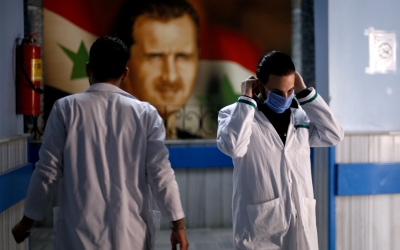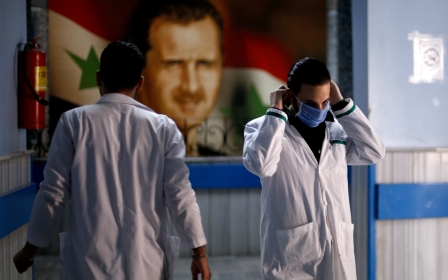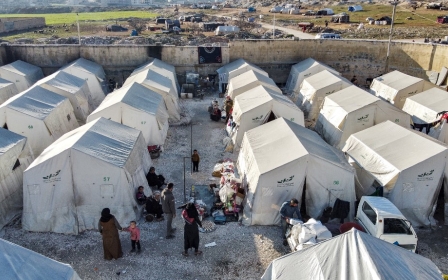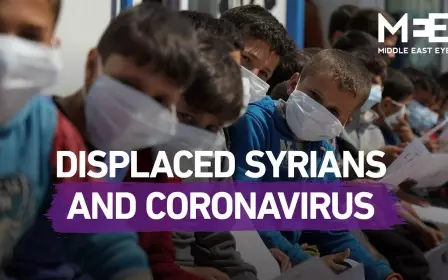Coronavirus: Syrian jails face 'disastrous' situation if detainees not freed
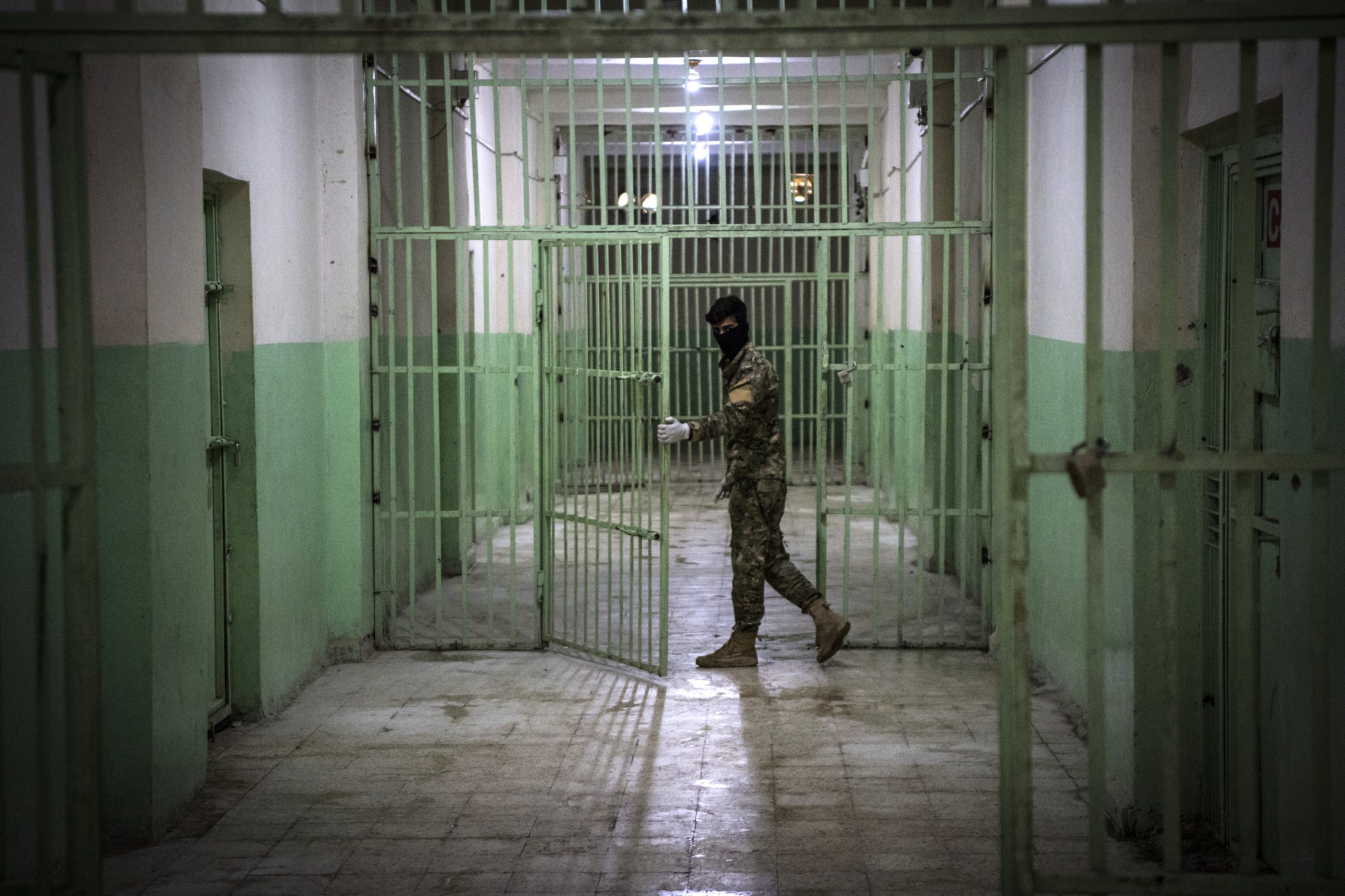
Campaigners have called on prisoners to be released from detention and jails in Syria over fears of spreading the coronavirus pandemic.
In a letter signed by 43 human rights organisations, campaigners warned of "disastrous" consequences if the deadly virus were allowed to proliferate throughout the country's prison system.
"The conditions of incarceration in the detention facilities of the Syrian government pose a great danger to the lives of the detainees, who number approximately 90,212," read the statement, adding that the real number of detainees was likely higher.
'Sometimes when someone dies as a result of torture, the government would make false records saying they were sick or died because of a heart attack, so they already have a history of not being honest'
- Ghalia Mardam Bek, Violations Documentation Center
It said that detainees were being "killed in detention centres as a result of systematic torture, denial of medical care, and from detention in cramped, unhygienic and unventilated cells".
The letter called on the Syrian government to "immediately release detainees as well as political prisoners and human rights defenders".
New MEE newsletter: Jerusalem Dispatch
Sign up to get the latest insights and analysis on Israel-Palestine, alongside Turkey Unpacked and other MEE newsletters
"To limit the possibility of the virus infecting detainees, no new arrests should be made," it added.
Ghalia Mardam Bek, Executive Director at The Violations Documentation Center NGO, told Middle East Eye that the letter aimed at applying pressure on the Syrian government and the international community to act to avert a major health crisis.
“Detainees are not living in good conditions, they are being tortured every day, they stay in small rooms, more than 80 in one room. Imagine if one of them is infected, what will happen to the rest?" she said.
"If they get the virus, they will not be able to survive. Healthcare in the detention centres is almost zero. If any of them is infected, they will not know they have coronavirus virus until the symptoms are at their worst."
After spending weeks rejecting allegations that the pandemic had reached the country, the Syrian government on Sunday confirmed its first case of Covid-19.
Health Minister Nizar al-Yaziji told state media "necessary measures" had been taken regarding the 20-year-old woman, who he said would be quarantined for two weeks under medical supervision.
However, Mardam Bek warned that in past the Syrian government had been highly secretive when it came to deaths in detention.
“Sometimes when someone dies as a result of torture, the government would make false records saying they were sick or died because of a heart attack, so they already have a history of not being honest," she said.
"So I don't have high hopes for the Syrian government. I hope the international community will be able to apply some pressure to check on detainees.”
Call for inspections
Syria's health infrastructure is in ruins after over nine years of war.
Tens of thousands of people have disappeared into government jails since the beginning of anti-government demonstrations in 2011.
Opposition groups have also kidnapped and imprisoned thousands of people.
In Monday's statement, the human rights groups stressed the need for the International Committee of the Red Cross and the World Health Organisation to investigate prisons and detention centres to assess their conditions and any medical aid that might be needed.
"All parties to the conflict must take urgent and effective measures to open all detention centers in Syria to the competent international authorities, and take the necessary measures to save the lives of detainees, in accordance with international human rights law and based on the relevant international resolutions," it said.
Amnesty issued
Syrian President Bashar al-Assad issued a prisoner amnesty on Sunday, according to state media, which said it was a move to prevent spreading the virus further.
However, human rights lawyers say the pardon would probably free criminals, leaving behind thousands of political detainees at risk of infection.
Damascus also announced on Sunday a ban on public transport, as well as the closure of schools, parks, restaurants and various public institutions. It also said it would end army conscription.
Medics have also warned that the country is vulnerable to thousands of Iranian-backed militias fighting alongside Assad's forces.
The groups, which have helped prevent the collapse of Assad's administration, are a major presence in Syria's big cities and are headquartered in the Damascus suburb of Sayeda Zainab.
Iran has been one of the countries worst hit by coronavirus.
On Tuesday, the Islamic Republic announced 122 new deaths from the illness, raising the official toll to 1,934.
Middle East Eye delivers independent and unrivalled coverage and analysis of the Middle East, North Africa and beyond. To learn more about republishing this content and the associated fees, please fill out this form. More about MEE can be found here.


